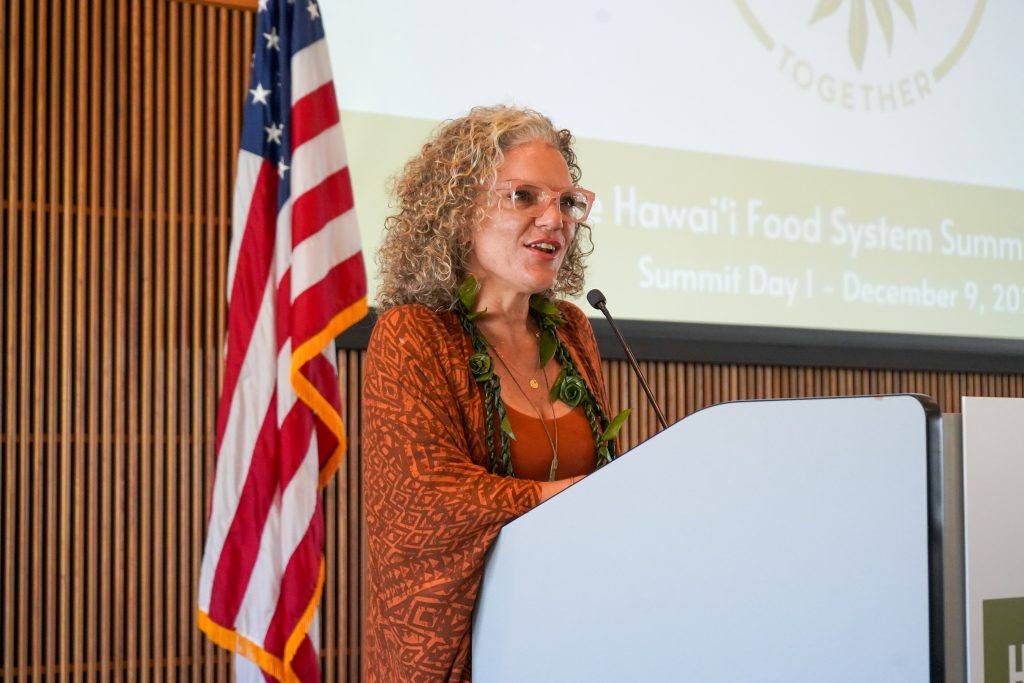Food System advocates urge collective action to address Hawaiʻi food insecurity
The 2024 Hawaiʻi Food System Summit, organized by the Transforming Hawaiʻi’s Food System Together initiative, recently wrapped up their third annual event, which drew over 200 attendees.
This year’s theme addressed Hawaiʻi’s household food insecurity crisis — which affects one in three local households — and attendees shared examples of community-driven programs that are increasing local food production and distribution across the islands.
“Our food system is profoundly underperforming when it comes to providing food for Hawaiʻiʻs households, but there is positive momentum around legislative action, collaboration, and cross-sector solutions,” said Albie Miles, an associate professor of Sustainable Community Food Systems at UH West Oʻahu and one of the summit’s organizers. “We have a moral obligation to address the profound social and ecological externalities of our food system. Together, we can transform our food system to improve health, equity, resilience, sustainability, and biocultural restoration,” he said.
The two-day summit saw attendees from diverse sectors join forces to discuss strategies, community-driven programs, and forward-thinking policies to strengthen Hawaiʻi’s food system, especially in the context of disasters like the 2023 Maui wildfires. Summit attendees expressed support for establishing Universal Free School Meals programs in Hawaiʻi public schools, expanding the Supplemental Nutrition Assistance Program (SNAP) to more households, and scaling up “Food is Medicine” programs that integrate food and nutrition into healthcare as just a few of the priority actions needed to address Hawaiʻi’s household hunger crisis.
“Around 40% of Hawaiʻi Island households faced food insecurity in 2024, and we’ve seen as much demand for our services in the last year as we did during the height of the pandemic,” said Duryn Izumo, managing director of The Food Basket, Hawaiʻi Island’s food bank. “We are pleased to see progress like last year’s legislative appropriation for the DA BUX Double Up Food Bucks program, but more state support is urgently needed to ensure Hawaiʻi’s families have access to healthy, affordable food.”
Summit participants also discussed the urgent need for progress on key food and agricultural policies during the 2025 legislative session. Senate Resolution 111, which was adopted during the 2024 legislative session, requested the Department of Agriculture to establish a food systems working group to develop an interagency food system plan for the state. With proactive planning and collaboration, county-level food system plans are also at various stages of development or implementation. Summit attendees provided input on priority topics for the statewide food systems working group to incorporate into the interagency food system plan, which is expected to be completed by the Department of Agriculture in 2025.
“The consequences of hunger extend far beyond the dinner table – it impacts health, education, and the very fabric of our communities,” said Gov. Josh Green via video to the attendees. “Across our state, we are seeing incredible efforts to address food insecurity from community gardens and food drives, to innovative public-private partnerships. This summit is a crucial step in achieving that vision.”




















